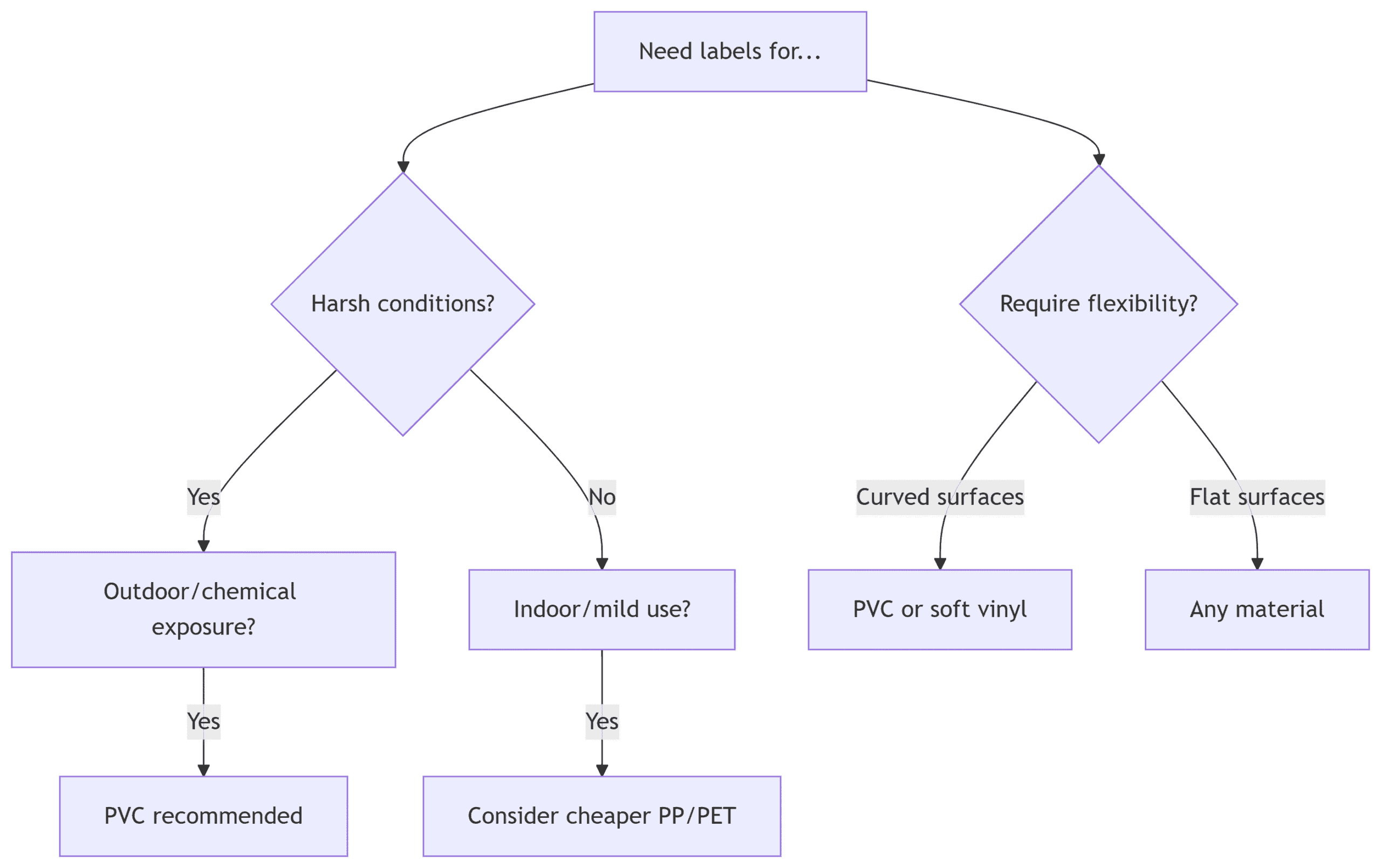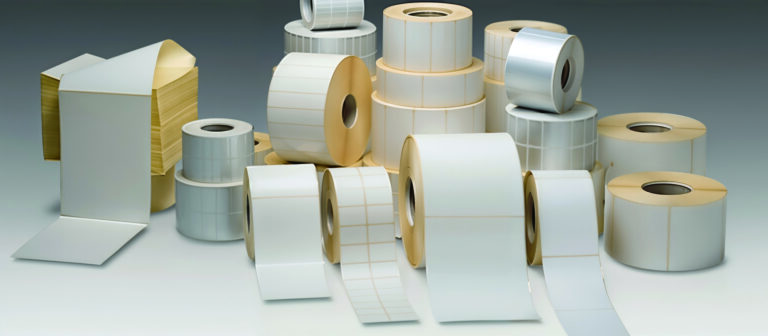YUEHELE
Guangdong Yuehele Label Material Co., Ltd. is a high-tech enterprise integrat
ing scientific research, production, sales, technical support and service for users.

PVC stickers are durable, flexible labels made from polyvinyl chloride (PVC), a synthetic plastic polymer. Unlike paper or standard vinyl stickers, PVC offers unique properties that make it ideal for demanding environments. Below is a detailed breakdown of their features and applications
Core Characteristics of PVC Stickers
| Property | Description |
|---|---|
| Material | Plasticized PVC (flexible) or rigid PVC |
| Thickness | 0.1–2.0 mm (adjustable for rigidity/flexibility) |
| Durability | Waterproof, UV-resistant, chemical/oil-proof, abrasion-resistant |
| Flexibility | Conforms to curved surfaces (e.g., bottles, tools) |
| Temperature Range | -20°C to 80°C (short-term tolerance up to 100°C) |
| Finish Options | Glossy, matte, textured, metallic, or clear |
| Lifespan | 5–10+ years outdoors (vs. 1–3 years for standard vinyl) |
When to Choose PVC Stickers

Key Applications
1. Industrial & Automotive
- Machine safety labels: Warning tags on equipment.
- Automotive badges: Brand emblems on cars/motorcycles.
- Tool identification: Labels for drills, generators.
- Chemical drum marking: Resistant to solvents/oils.
2. Outdoor & Harsh Environments
- Marine labels: Boat registration decals (saltwater-resistant).
- Agricultural tags: Tractor/implement labels (mud/dust-proof).
- Pool equipment: Chlorine exposure resistance.
3. Branding & Retail
- Premium product labels: Wine/spirit bottles, cosmetics.
- Promotional decals: Event giveaways (indoor/outdoor).
- Retail shelf tags: Reusable pricing labels.
4. Specialized Uses
- Medical devices: Biocompatible grades for FDA-compliant labels.
- Electronics: Insulating labels on wiring/power tools.
- Tamper-evident seals: Destructible PVC for security.
PVC vs. Common Label Materials
| Feature | PVC | Vinyl | PP/PET Films |
|---|---|---|---|
| Water Resistance | ★★★★★ | ★★★★☆ | ★★★☆☆ |
| Chemical Resistance | ★★★★★ | ★★★☆☆ | ★★★★☆ |
| Tear Strength | ★★★★☆ | ★★★☆☆ | ★★★★★ |
| Flexibility | ★★★★★ | ★★★★☆ | ★★★☆☆ |
| Cost | High | Medium | Low-Medium |
Production Methods
- Digital Printing
- Short runs, full-color designs.
- Requires UV-resistant inks for outdoor use.
- Screen Printing
- Thick ink layers (ideal for metallic/glow-in-dark effects).
- Die-Cutting
- Precision shapes (e.g., logos with intricate outlines).
Limitations & Considerations
⚠️ Environmental Impact:
- Traditional PVC contains phthalates (avoid with eco-certified phthalate-free PVC).
- Recycling challenges (seek recyclable PVC variants).
⚠️ Adhesive Compatibility:
- Use solvent-based acrylic adhesives for long-term bonding.
- Avoid rubber-based adhesives (plasticizer migration causes failure).
⚠️ Regulations:
- EU/UK: Comply with REACH, RoHS for restricted substances.
- Food Contact: Requires FDA 21 CFR or EU 10/2011 compliance.





 leave a message
leave a message